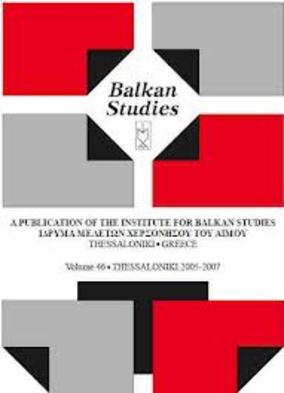Albania’s emergence onto the Balkan scene
Part of : Balkan studies : biannual publication of the Institute for Balkan Studies ; Vol.38, No.1, 1997, pages 151-158
Issue:
Pages:
151-158
Section Title:
Articles
Author:
Abstract:
The Albanian people did not achieve statehood until the 20th century.Half the Albanian nation was then left outside the state, and the state had aprecarious existence, suffering many severe vicissitudes, until well after thesecond world war. Disputes with Greece over Epirus diminished after the war,but relations with Yugoslavia have been periodically soured by the issues ofKosova and western FYROM. Enver Hoxha and the Albanian CommunistParty successfully exploited the National Liberation Movement and theGerman war to seize power in 1944 and reconstitute Little Albania, but theycould not make any progress towards achieving the national ambition of a Greater Albania. Only the Stalin-Tito breach saved Albania from being absorbedinto Yugoslavia. The imperatives of survival largely dictated Hoxha’ssubsequent policies of rapprochement with the Soviet Union, rapprochementwith China and finally complete isolation. The Albanian state having surviveduntil the communist system collapsed, it is now emerging as an autonomousplayer on the European scene. The collapse of the old Yugoslavia has turnedKosova and western part of FYROM into active issues. Albania is too weak toinfluence developments there effectively, but the issues will not go away. TheAlbanian question now has to be recognised as a real and important one, andthe international community will from now on have to give greater attention toAlbania’s needs and interests.
Subject:
Subject (LC):
Keywords:
Αλβανία στα Βαλκάνια




